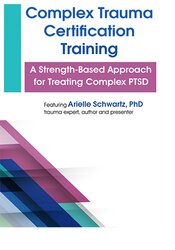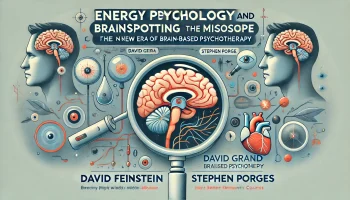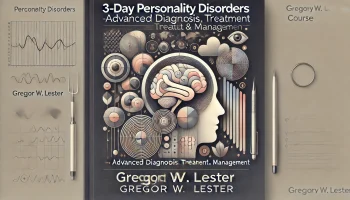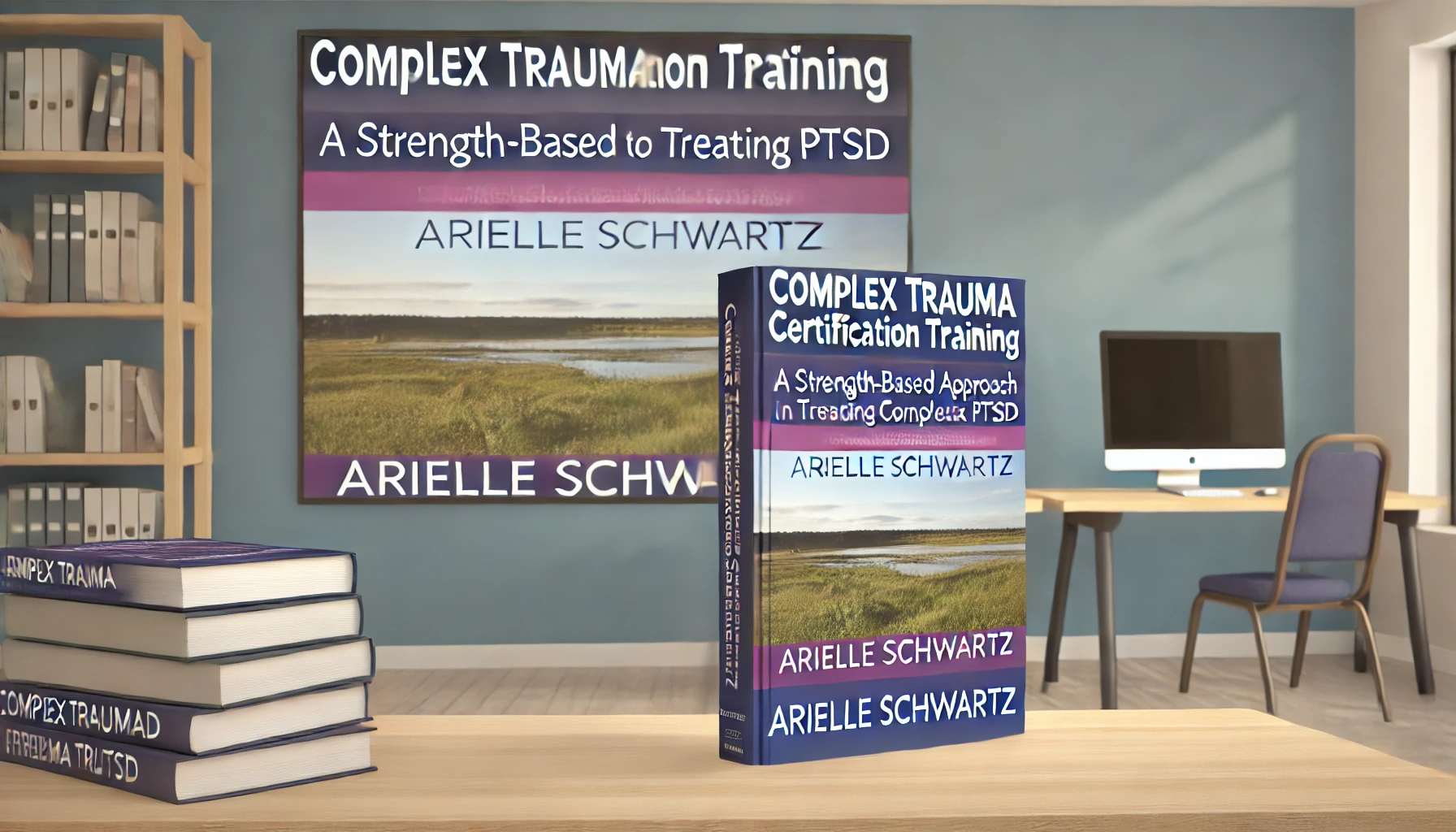Complex Trauma Certification Training-A Strength-Based Approach for Treating Complex PTSD – Arielle Schwartz
Complex Trauma Certification Training-A Strength-Based Approach for Treating Complex PTSD – Arielle Schwartz has the same quality as the author’s salapage.
Overview
Salepage check: Complex Trauma Certification Training-A Strength-Based Approach for Treating Complex PTSD
Author: Arielle Schwartz
- Faculty: Arielle Schwartz
- Duration: 23 Hours 20 Minutes
- Format: Audio and Video
- Copyright: Nov 30, 2020
Many clinicians are trained in the treatment of single traumatic events, but are not fully equipment to treat Complex PTSD. The traditional approaches to the treatment of PTSD can fall short when working with clients with Complex PTSD. Watch this workshop to learn how you can adapt your therapeutic approach to help clients diagnosed with Complex PTSD achieve more successful outcomes.
The most common question asked when treating Complex PTSD is, “where do I start?”. In this training, you will develop confidence in your ability to successfully organize and prioritize your client’s treatment goals. You will learn how to compassionately and effectively work with clients who have experienced multiple traumatic events and prolonged trauma exposure.
Successful treatment requires a compassionate therapeutic relationship and effective, research-based interventions. After this training you will learn how to:
- Help clients move out of crisis by building stabilizing resources
- Prepare clients to work through traumatic memories without becoming overwhelmed
- Develop an integrative trauma treatment plan that includes CBT, DBT, EMDR Therapy, Somatic Psychology, Parts Work Therapy, and Complementary and Alternative Medicine (CAM)
Watch Dr. Arielle Schwartz, trauma expert, trainer and author of The Complex PTSD Workbook, in this engaging and interactive seminar to learn valuable strategies that will allow you to successfully address the dysregulated affect and arousal states that accompany Complex PTSD. You will leave this seminar with practical tools that facilitate a strength-based approach to trauma recovery and increased resilience in clients.
Bonus!
Become A Certified Clinical Trauma Professional Level II (CCTP-II)!
Best of all, upon completion of this live training, you’ll be eligible to become a Certified Clinical Trauma Professional Level II (CCTP-II)* through Evergreen Certifications. Certification lets colleagues, employers, and clients know that you’ve invested the extra time and effort necessary to understand the complexities of trauma counselling. Professional standards apply.
*To earn your CCTP Level 2 Certification, you must already hold CCTP certification or evidence equivalency.
Handouts
| Manual – Complex Trauma Certification Training (11 MB) | 160 Pages | Available after Purchase |
Outline
Post-Traumatic Stress Disorder vs. Complex PTSD: Understand the Difference
- Acute traumatic stress, PTSD, Complex PTSD
- Diagnostic clarification, differential diagnosis and co-morbidities
- Key contributing factors of Complex PTSD
- The common symptoms of Complex PTSD
The Neurobiology of PTSD: Beyond Fight and Flight
- Polyvagal Theory
- Stages of trauma response
- Trauma specific psychopharmacology
- Heart Rate Variability and the Social Nervous System
- Interpersonal Neurobiology
- Psychobiological regulation
- Rupture and repair
- Implications of childhood neglect or abuse
- Neuroplasticity and Complex PTSD
Psychological and Physiological Repercussions of Complex PTSD: A Deeper Understanding for Accurate Assessment
- Intrusive symptoms and anxiety
- Emotional dysregulation: Outbursts of anger and debilitating shame
- Avoidance symptoms and phobic reactions to traumatic material
- Interpersonal problems and difficulty being close to others
- Dissociation and dysregulation
- Cognitive distortions and compromised meaning making
- Physical health problems, ACE factors and painful somatization
- Preverbal and nonverbal memories
- Disturbing somatic sensations
- Depressive symptoms
- Learned helplessness and shame
Therapeutic Interventions for Complex PTSD: Summary of Effective Therapies
- Psychodynamic and Relational Therapy
- Psychobiological perspectives: Polyvagal Theory
- Cognitive Behavioral Therapy (CBT)
- Dialectical Behavioral Therapy (DBT)
- EMDR Therapy
- Somatic Psychology
- Parts Work Therapy: Work with Ego States
- Complementary and Alternative Medicine (CAM):
mindfulness, yoga, and integrative healthcare
Integrative Treatment for Complex PTSD: Putting it All Together for an Effective Treatment Plan
- A Biopsychosocial Approach: Partner with clients to build a health care team
- Goal of treatment: Memory retrieval vs. trauma recovery
- History taking: Identify chronic, repeated, and/or developmental trauma events
- Cultural factors and Complex PTSD
- Recognize attachment injuries
- Identify parts, ego states and defenses
- Assess for dissociation (“fragmentation”)
- Clinical Vignette #1
- Mutual regulation and relational repair in therapy
- Prepare for trauma processing: Develop resources and stability
- Working with parts of self
- Work through traumatic memories: EMDR and Somatic Psychology
- Clinical Vignette #2
- Grief work in Complex PTSD
- Integrate and Instill positive change
Experiential Interventions: Mind-Body Practices for Clients with Complex PTSD
- Conscious breathing for self-regulation
- Grounding and sensory awareness
- Containment: Reclaim choice and control
- Build imaginal allies
- Cultivate mindfulness, acceptance, and self-compassion
- Somatic interventions: Titration, sequencing, and somatic re-patterning
- Bilateral stimulation and dual attention in EMDR Therapy
- Potential risks and limitations of mind-body therapies
Special Considerations in Complex Trauma Treatment
- Working with Preverbal and Nonverbal Memories
- Working with transgenerational trauma
- Somatization, Chronic Pain and illness
- Gate Control Theory
- Mindfulness, Yoga, and Compassion Based Interventions
- Clinical Vignette #3
Fostering Resilience: For Post-Traumatic Growth and Healing
- Learn the 6 Pillars of Resilience
- Trauma recovery and the bell curve
- Resilience as a process and an outcome
- Help clients move from learned helplessness to learned optimism
- Post-Traumatic Growth: Help clients reach their potential
Vicarious Trauma: Improve Client Outcomes Through Effective Self-Care
- Identify resources that improve your clinical skills
- In-session self-care to improve focus on the client and therapeutic process
- Burnout prevention techniques
Arielle Schwartz, PhD
Arielle Schwartz, PhD, is a licensed clinical psychologist, Certified Complex Trauma Professional (CCTP-II) and EMDR consultant with a private practice in Boulder, Colorado. She is the co-author of EMDR Therapy and Somatic Psychology: Interventions to Enhance Embodiment in Trauma Treatment (Schwartz & Malberger, 2018, W.W. Norton) and the author of The Complex PTSD Workbook: A Mind-Body Approach to Regaining Emotional Control and Becoming Whole (Schwartz 2016, Althea Press).
Dr. Schwartz is an international presenter on EMDR therapy, somatic psychology, complex PTSD, attachment trauma, and the psychological treatment of chronic pain. She is a certified Kripalu yoga instructor offering therapeutic yoga for trauma recovery. Her integrative approach to therapy includes the synthesis of somatic psychology, EMDR therapy, structural integration theory, existential therapy, and Gestalt – all with a strong relational foundation of care.
Speaker Disclosures:
Financial: Arielle Schwartz is in private practice. She is an author for W.W. Norton and receives royalties. Dr. Schwartz receives a speaking honorarium from PESI, Inc.
Non-financial: Arielle Schwartz is a member of American Psychological Association (APA); EMDR International Association (EMDRIA); and Colorado Association of Psychotherapists (CAP).
Curriculum
FAQs
Requirements
- A background in mental health or psychology is recommended.
- Internet access to join online training sessions and view course materials.
- Basic understanding of PTSD and trauma-related conditions.
Features
- In-depth training on treating complex PTSD using a strength-based approach.
- Techniques for improving resilience and post-traumatic growth in clients.
- Evidence-based interventions to manage symptoms of complex trauma.
- A comprehensive guide to understanding the neurobiology of trauma.
- Practical exercises and case studies to enhance clinical skills.
- Learn directly from trauma expert Arielle Schwartz.
Target audiences
- Mental health professionals, including psychologists, therapists, counselors, and social workers.
- Students and practitioners in the field of trauma therapy.
- Anyone interested in expanding their knowledge of complex PTSD and trauma-informed care.




